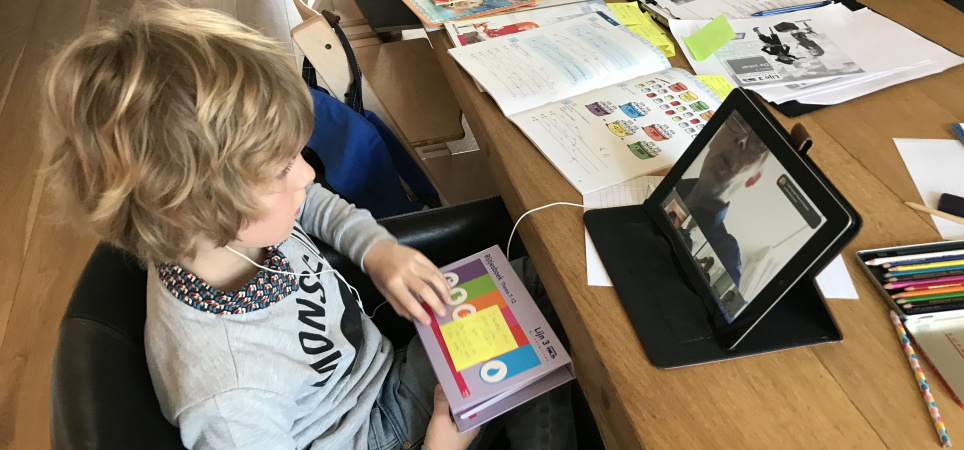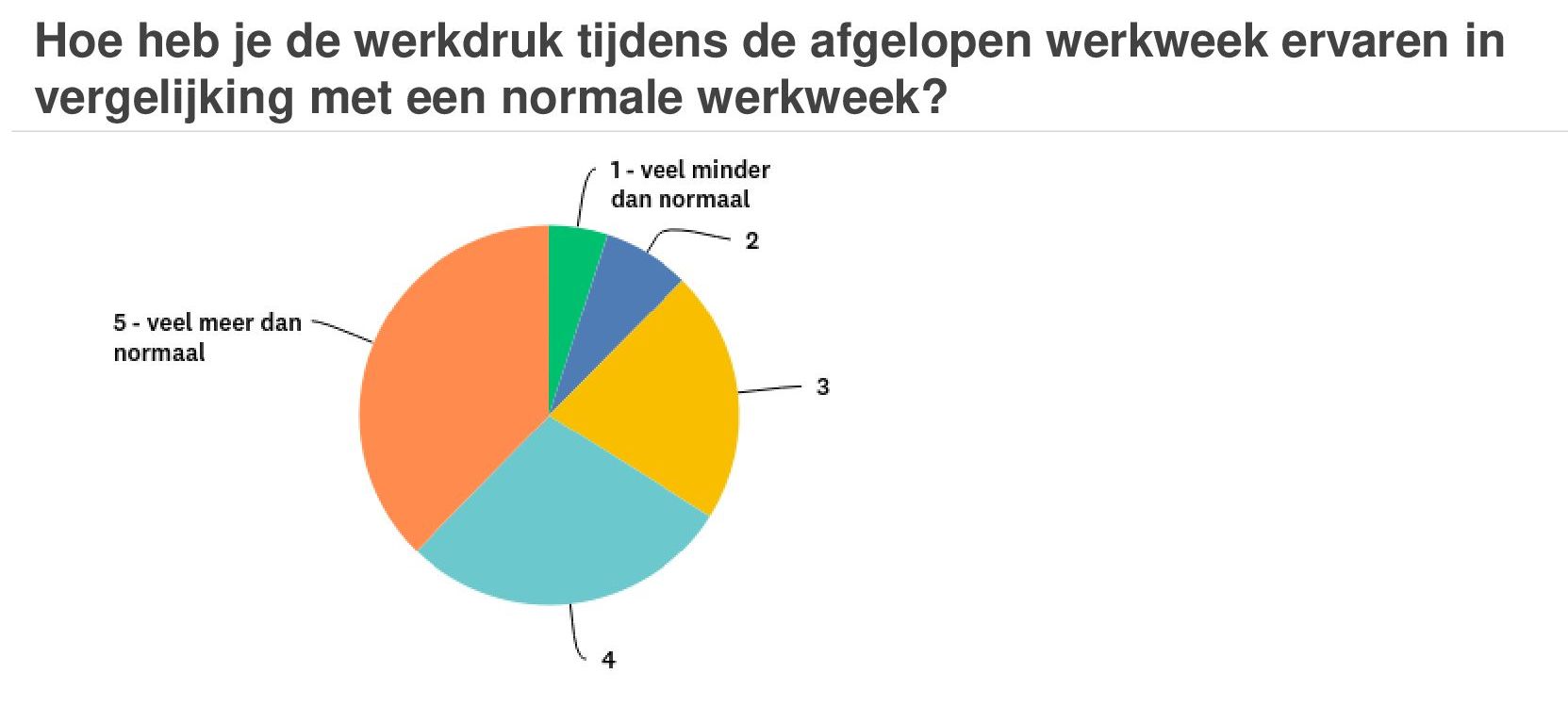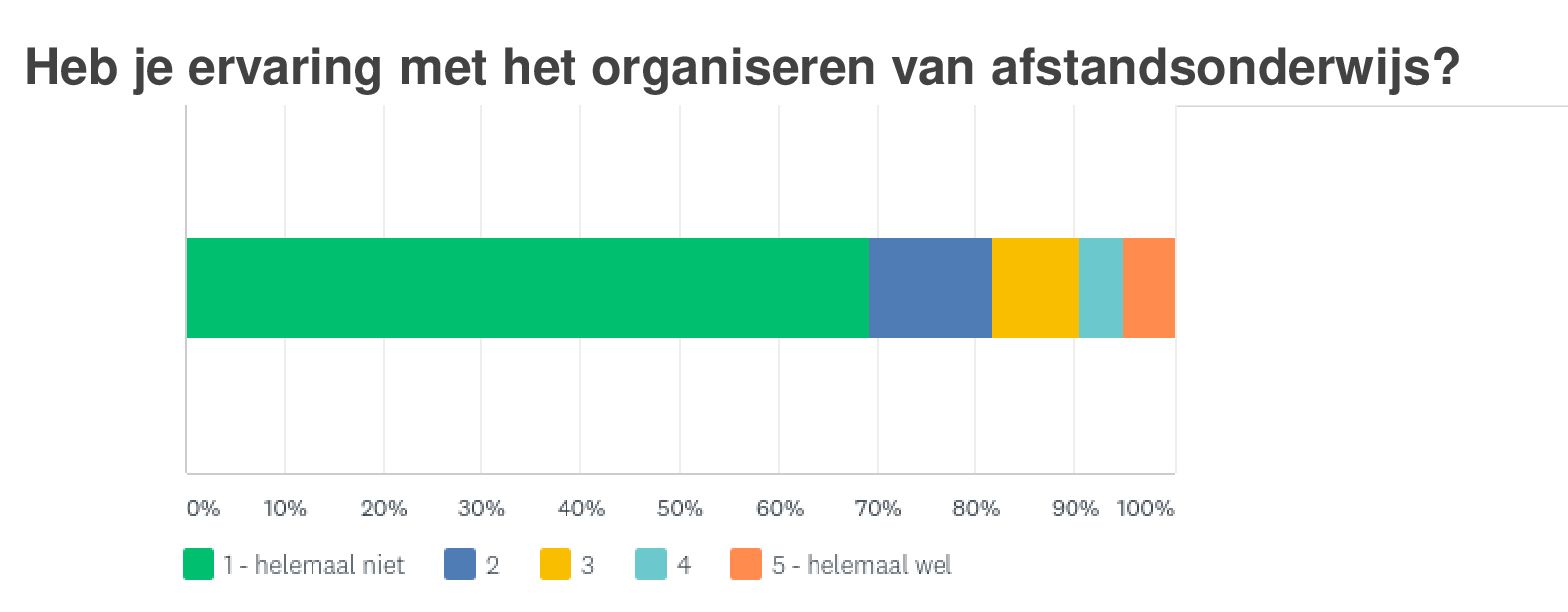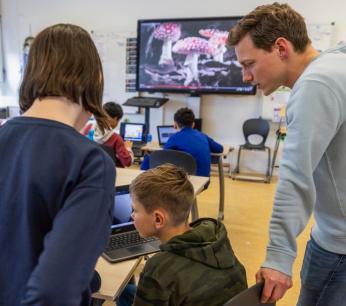Distance learning fills with pride, but increases workload
People work very hard in education. More than two thirds of the AOb-members indicate in a survey that they experience more to much more work pressure now that the schools are closed. At the same time, members are pleased that education continues as much as possible. There is concern about the special needs pupils and pupils in the lowest educational levels.

statue: AOb
'I think it is great that we have set up distance education in a very short time,' one writes AObmember in the open answers of a survey that nearly 10 employees from all educational sectors completed. 'It costs energy, this pressure cooker, but it provides us with so much knowledge! However, concerns about the social side and the limited contact with the children. That is what our first (digital) attention is focused on. '

Almost 80 percent of the respondents think it is good that the educational process continues as far as possible from a distance. It should be noted, however, that the current situation causes a much higher work pressure: 67 percent of the respondents indicate that they have experienced more to much more work pressure in the past week than in a normal working week. “Routines have been broken, in a matter of days, teachers have put in an incredible effort,” says AObdriver Jelmer Evers. As a result, 43 percent experience insufficient work-life balance.
In this situation you don't have to give the same education one-on-one as you used to
Teaching staff with school-aged children is significantly more troubled by the overlap between work and private life than colleagues without school-age children. "That's why it's very important to get some rest now," advises Evers. "In this situation, you don't have to give the same education one-on-one as you used to. This is education in a crisis situation, handle it with care. Do what you can, but don't push yourself, colleagues or students too far.” Many teachers also call for this in the survey's open comments.
How long will children keep this up? How do parents organize work in addition to involuntarily chosen home education?
More than 80 percent of all respondents are concerned about the home situation of students. This applies most often to pupils in (primary and secondary) special education and practical education, followed by primary education and MBO levels 1 and 2. About half of the respondents from these types of education indicate that distance learning is not or hardly suitable for their students. 'How long are children going to keep this up? How do parents organize work in addition to involuntary homeschooling ', one teacher wonders. Again, these concerns are greatest at the lowest levels of education. HBO, WO and MBO teachers 3 and 4 indicate that distance learning is predominantly suitable for their students.

More than eight out of ten AObmembers had little or no experience with distance learning until a week and a half ago. 'I will retire in December. I could never have imagined that I still had so many new things to learn in this last year. And that also works', says a respondent. “People of education have stepped over the thresholds that existed”, you see AObdriver Evers. “Knowledge and skills have been expanded at breakneck speed. I think it's phenomenal. ”
We are teachers, not ICT specialists, multimedia designers or method developers
The less experience with organizing distance education, the more there is a need for support from the school AOb-suffered from. Incidentally, almost 85 percent of the respondents say they receive reasonable to good support. At the same time, 70 percent of the respondents think there is enough room to fill in distance learning as they see fit. And almost all are allowed AObmembers working from home in all sectors. 'I am proud of what is happening, but I hope for a national solution. (..) After all, we are teachers, not ICT specialists, multimedia designers or method developers, 'one teacher summarizes. Remarkable: the perceived work pressure is highest in secondary, secondary vocational and higher education. While familiarity with distance learning is greatest there. Whether or not they have experience with distance learning therefore has no influence on the perception of the workload.
Vital
They are also looking forward carefully. 'I must admit that when I hear politicians talk about that education is so important, that those words rub against the deeds / words of the last negotiations', writes one AObmember. 'I really hope that the realization that education is a wonderful and vital profession and that without good education society cannot flourish.
Teaching staff with exam classes especially wanted clarity about whether or not exams will go ahead. Earlier today it was announced that they will be canceled. Read there here more about.


